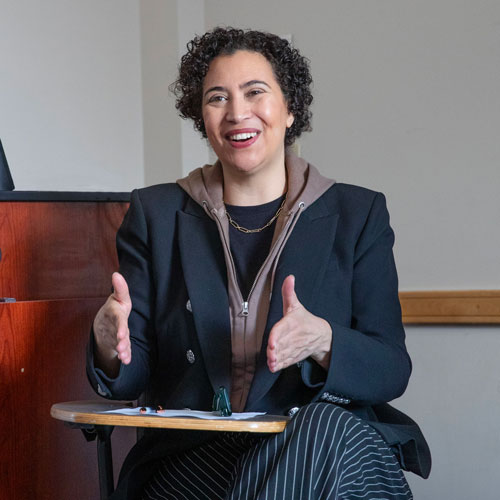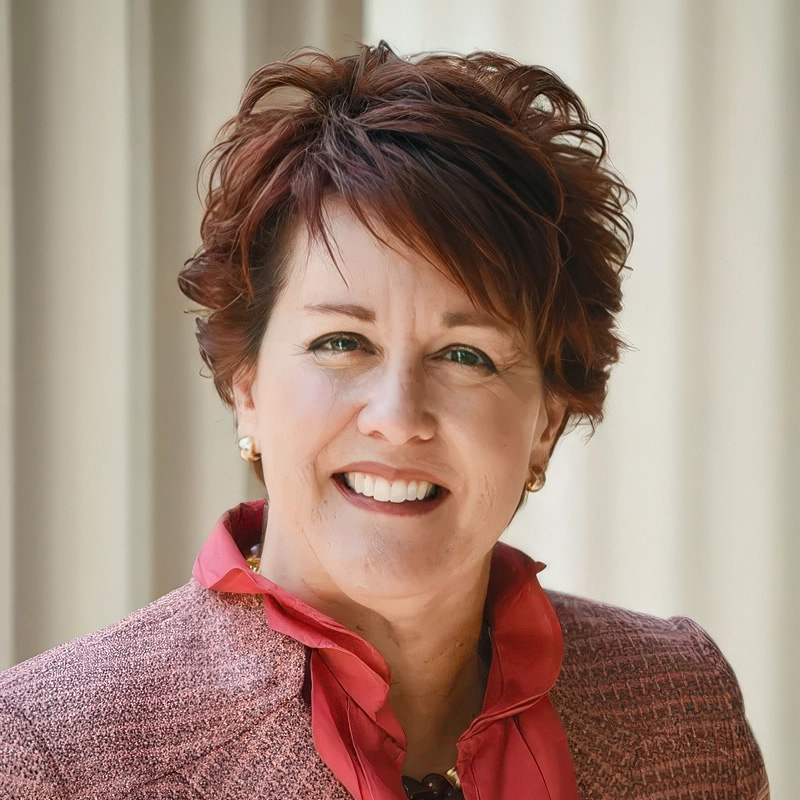Cornel West discusses racial justice, activism and more with faculty and students
Eminent public intellectual Cornel West engaged in lively and frank discussions with faculty and students about topics that ranged from racial justice to advice for student activists.
“Going to the Griot: Conversations with Dr. Cornel West,” included Associate Professor of Gender Studies Gwen D’Arcangelis, Dean of Students and Vice President for Student Affairs Cerri Banks, political science major Anissa Joseph ’22, and Kezia Page, associate professor of English and director of Africana and Latin American studies at Colgate University.
The Monday, April 12, event was moderated by Winston Grady-Willis, director and professor of Black Studies, sponsored by the Black Studies Program and supported by Skidmore College’s Racial Justice Initiative in collaboration with the New York Six Liberal Arts Consortium.
West participated in live, intersectional conversations with each panelist: West and D’Arcangelis discussed her new book and broader questions of empire, imperialism and resistance. Banks asked West about differences among generations of student activists and the current impact of social media. Joseph inquired about enduring Eurocentric concepts in the academy.
In his conversation with Page, West situated the Black Power movement in a broader international context and compared it to the contemporary Black Lives Matter movement. West said BLM has a different audience than movements focused primarily on the empowerment of African Americans.
“Most Black folks don’t need to be told that their lives matter. They need to be told that they can fight for a different world,” West said. “Black Lives Matter is telling the white power structure that our lives matter. It’s an interesting shift in sensibilities.”
West is a leading philosopher, author, activist and social critic. The author of more than 20 books, he recently announced that he would leave his position as professor of the practice of public philosophy at Harvard University and return to Union Theological Seminary, where he started his teaching career and will hold the Dietrich Bonhoeffer Chair.
During a poignant exchange toward the end of the event, a student audience member asked West and other panelists about frustration in achieving social justice goals when so much “never seems to change.”
With characteristic humility, West invited other members of the panel to speak first, saying, “There’s a whole lot of wisdom here.”
Joseph, a Skidmore junior, spoke about her own efforts to navigate such challenges.
“I think the way that I go forward is seeing my work and my role,” she said. “I think finding your role and doing the absolute best that you can to fulfill your role in our communities — that is the way forward.”
Banks also encouraged students to make smart choices about how they engage on social media and how they spend their energy.
“It is not on you to work to change all of these pieces to your own detriment. So there is space for your self-care, you’ve got to make choices about your activism,” Banks said.
West noted that it is important to maintain the struggle against injustice even when difficult obstacles remain. He compared African Americans’ struggle to blues music.
“Blues people are never surprised by evil or paralyzed by despair. We’re not optimistic, and we’re not pessimistic either. We’re ready to fight, ready to sing the next song, ready to get on the bus and hit the next gig, keep empowering the people, keep loving the people, no matter what,” West said.
The important thing, West emphasized, is to maintain as much “strength, joy, power, willingness to serve and sacrifice” as earlier generations of activists displayed.
“If we don't fight, there could be 10 Breonna Taylors and 10 George Floyd Juniors every week. And we do fight, and there’s still too many. But if we fight, there’s less,” West said. “How do we create these moments of interruption in which hatred and greed don't have the last word, so that domination and oppression don't have the last word? How do you do it? Struggle.”
The event was West’s second virtual engagement with the Skidmore community in less than a month. In March, he spoke live with Robert P. George, McCormick Professor of Jurisprudence and director of the James Madison Program in American Ideals and Institutions at Princeton University, during a discussion about the future of liberal education as part of the Periclean Honors Forum’s Policy Debate series.


